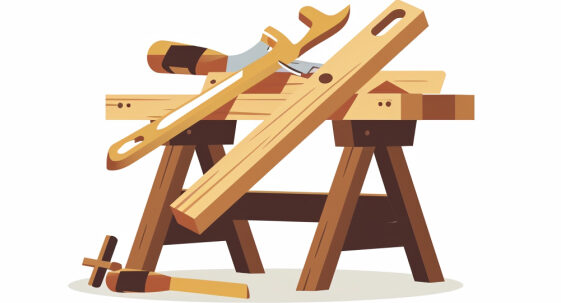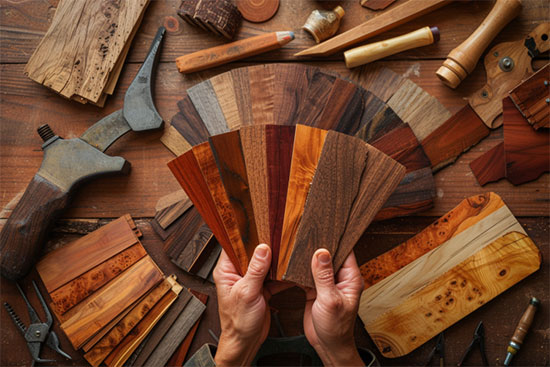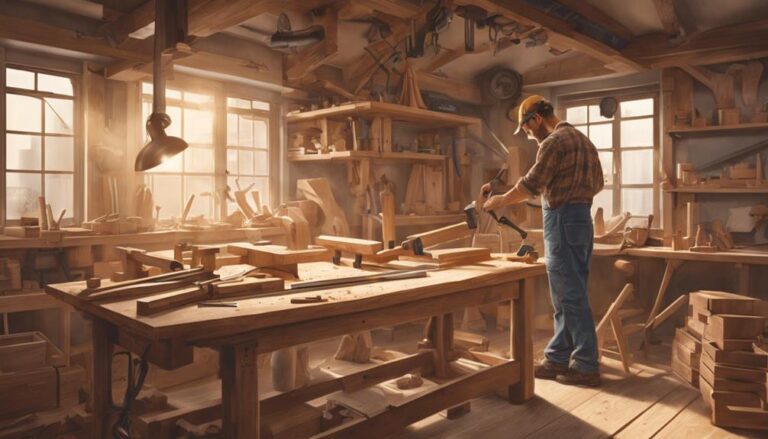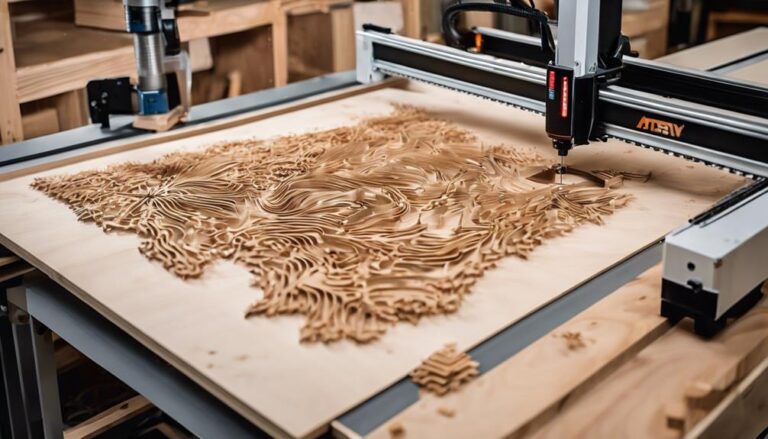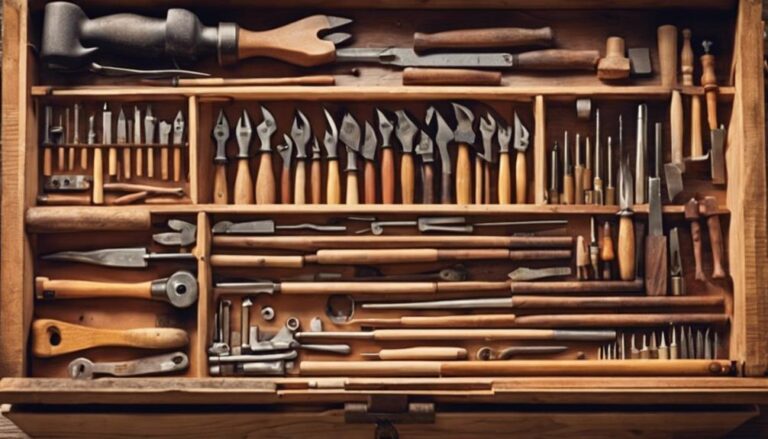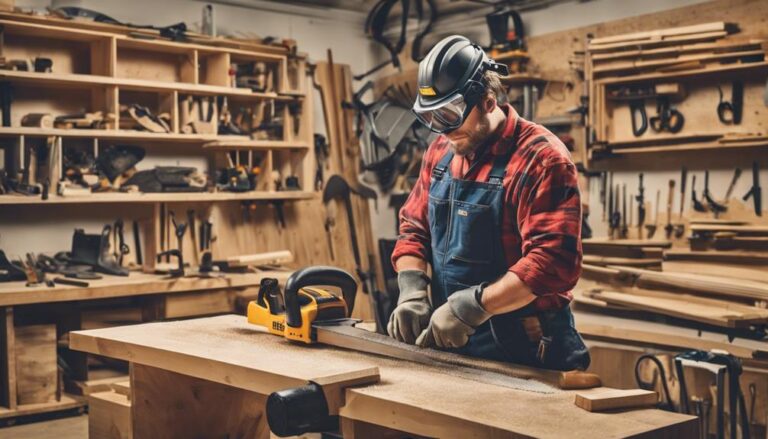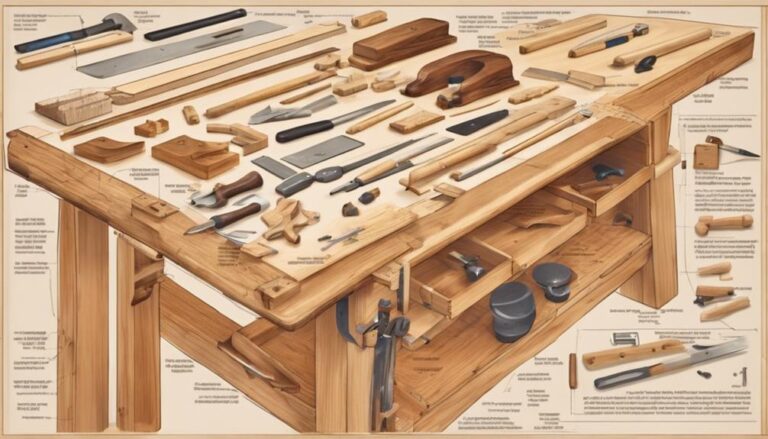Have you ever stood in your workshop, surrounded by a myriad of woodworking tools, and wondered if you’ve got the right ones for your projects? Selecting the appropriate equipment is not just about having the basics; it’s about understanding the nuances that make each tool indispensable for specific tasks.
As you embark on this journey, you’ll find that the difference between a good project and a great one often lies in the details – the precision of a cut, the smoothness of a finish, or the durability of an assembly.
Let’s explore how to elevate your woodworking to the next level, without revealing all just yet.
Contents
Understanding Woodworking Saws
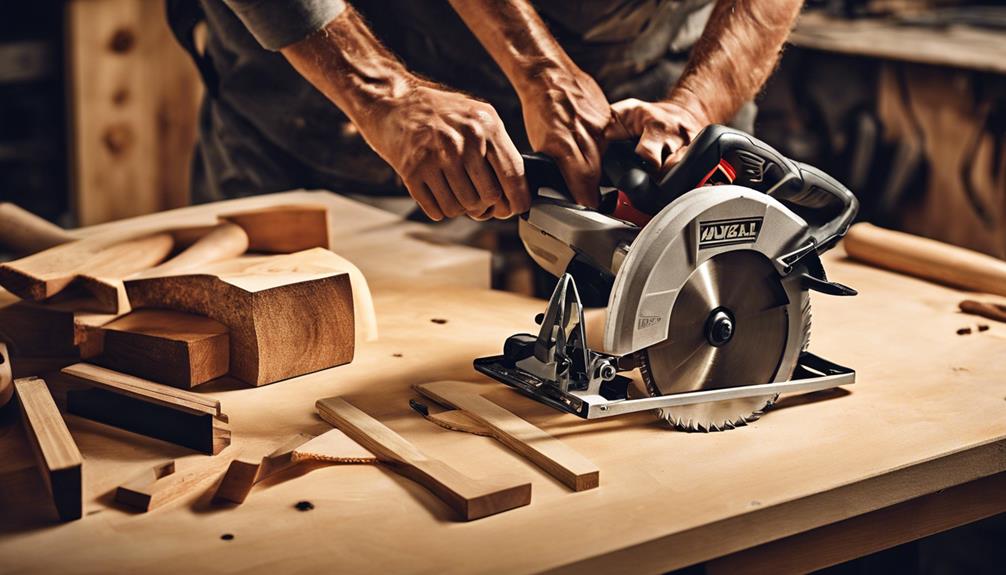
In the world of woodworking, selecting the right saw is crucial for achieving precise cuts and optimal results, whether you’re working on a simple project or intricate designs.
Circular saws, recognized for their versatility, offer a range of blade sizes from 4 to 7.25 inches, catering to diverse cutting needs.
Track saws, with their guided track system, ensure splinter-free, precise cuts in sheet goods, surpassing circular saws in accuracy.
Jigsaws excel in making curved and intricate cuts, essential for detailed woodworking projects.
Compound miter saws merge miter and bevel cutting capabilities, enabling precise angled cuts for molding and trim work.
Table saws, stationary powerhouses in the workshop, adjust for depth and angle, facilitating rip cuts, crosscuts, and bevel cuts with unparalleled precision.
Each of these woodworking tools plays a pivotal role in achieving precision cuts across various woodworking projects.
Essential Hand Tools
Diving into the realm of essential hand tools, you’ll find chisels, hammers, saws, mallets, and hand planes vital for precise shaping, assembly, and fine adjustments in your woodworking projects.
Chisels, including bench, mortise, and carving chisels, are indispensable for detailed work, allowing you to sculpt with precision.
Hammers, from claw to ball peen, are your go-to for driving nails and adjusting joints with finesse.
Saws, such as backsaws and coping saws, offer unparalleled cutting versatility, from straight lines to intricate curves.
Mallets, complementing chisels, ensure controlled strikes without damaging your workpiece.
Hand planes smooth and shape wood surfaces, giving your projects a flawless finish.
Mastering these tools not only enhances your craftsmanship but also brings your woodworking visions to life with exceptional detail and precision.
Power Tools Overview
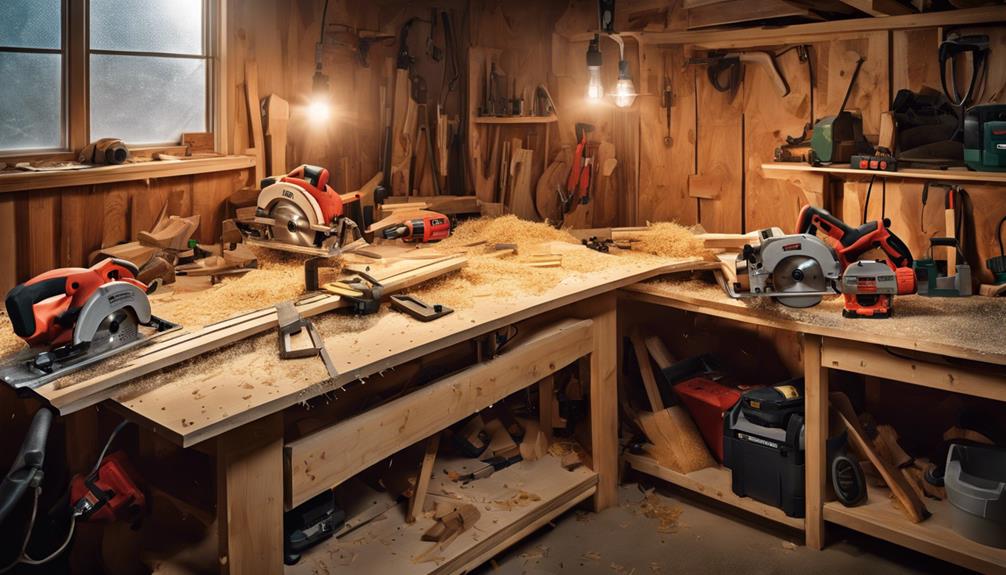
While mastering hand tools is crucial for detail and precision in woodworking, integrating power tools like table saws and drill combos elevates efficiency and accuracy in your projects.
Power tools, including miter saws, jigsaws, routers, and sanders, are indispensable for cutting, shaping, drilling, and joining wood with unparalleled speed and accuracy.
They not only enhance productivity but also enable the creation of smooth finishes and intricate designs with ease. These tools are versatile, offering various functions and speeds to meet different project requirements.
Measuring and Marking Tools
Transitioning to the realm of measuring and marking tools, you’ll find that accuracy in your woodworking projects hinges on utilizing tools like tape measures, squares, and marking knives. Precision in measuring and marking is non-negotiable for achieving professional results.
- Tape Measures & Squares: Essential for basic measurements and ensuring your work is square.
- Bevel & Marking Gauges: Provide the ability to transfer and replicate precise angles and distances.
- Marking Knives & Combination Squares: Offer unparalleled accuracy for marking lines, with knives giving crisp lines and squares ensuring perfect angles.
- Digital Calipers: Allow for exact measurements down to minute details, critical for fine joinery work.
Incorporating these tools ensures precision, accuracy, and consistency in your woodworking endeavors, laying the foundation for craftsmanship that stands the test of time.
Selecting Quality Accessories
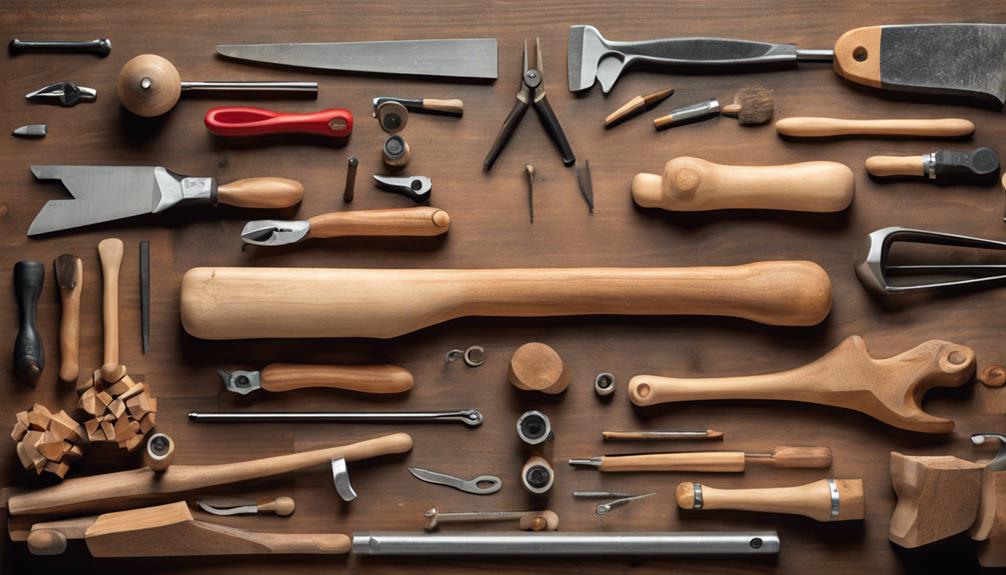
In selecting quality accessories for your woodworking projects, it’s crucial to prioritize items that enhance both safety and performance.
Wood glue, mineral spirits, and clamps are indispensable for assembling your projects securely and durably. Without these, you’re compromising on the structural integrity of your creations.
Goggles and gloves are non-negotiable for your safety, shielding you from potential accidents and injuries.
Sawhorses provide much-needed stability and support, ensuring your work surface remains level for precise cuts and measurements.
Importantly, don’t overlook safety equipment. Dust masks are essential for protecting against the inhalation of sawdust and harmful chemicals while hearing protection, such as earplugs or earmuffs, is vital for preserving your hearing health in the noisy environment of your workshop.
Conclusion
In conclusion, selecting the right woodworking tools and equipment is pivotal for your project’s success. You’ve learned about various saws, from circular to compound miter, and the importance of precision tools like table saws and bandsaws.
Don’t overlook essential hand tools and the accuracy brought by reliable measuring and marking devices. Always opt for quality accessories, such as Luxite Saws products, for durability.
Remember, maintaining your tools and adhering to safety practices are just as crucial as the tools you choose. Make your selections wisely to enhance your woodworking skills.
